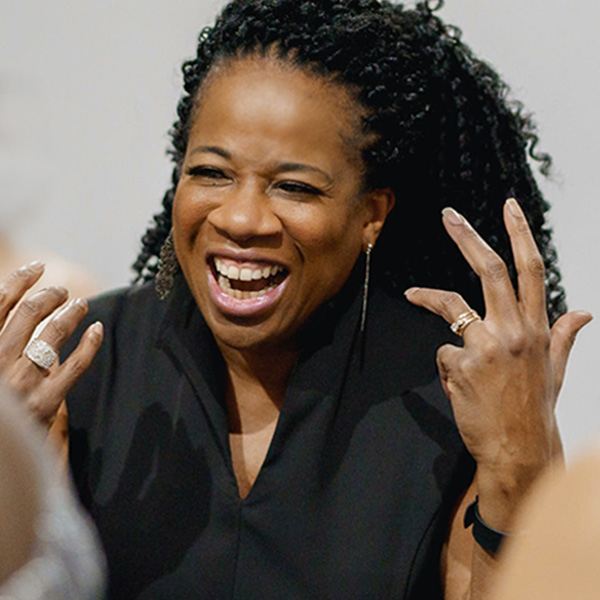Different folks look forward to different things during the holidays. Some delight in the gastronomic offerings – roast turkey, tourtière, gingerbread cookies, gourmetten (look it up). Some can’t wait to catch up with friends and family. Some seem to actually enjoy listening to Mariah Carey’s “All I Want for Christmas is You” for the billionth time (I mean, sure, it was fine the first 200 times I heard it).
And some look forward to the quieter moments when they can curl up on the coach with a good book.
Here are some possibilities for you to consider, all written by McGillians and published during this past year.
The Capital of Dreams by Heather O’Neill, BA’94
Like all the great fables, Heather O’Neill’s latest novel The Capital of Dreams will leave you contemplating some uncomfortable truths about life.
Set in the imaginary European nation of Elysia, the book follows 14-year-old Sofia Bottom on a quest for survival, love and selfhood as her country is invaded by “the Enemy.” O’Neill revisits some of her favourite themes, taking the agony of being a teenage girl to a new setting – one specific enough to recall the struggles of post-Soviet states but that also feels deeply relevant to today’s conflicts.
Sofia lives a life of luxury in the Capital but feels crushed by the impossible expectations of her mother, the famous feminist writer Clara Bottom. When Clara sends her daughter on a mission to smuggle her manuscript out of the country, Sofia ends up on a coming-of-age journey through Elysia’s misty forests and war-ravaged towns, accompanied by a talking aristocratic goose.
Filled with uncanny characters, the world O’Neill creates is dripping with allegory and infused with the magic of a folktale. Like Sofia, you will sometimes feel as if you’re searching for something that is just beyond your grasp, until you encounter a passage that makes your eyes go wide with understanding. These moments happen with increasing intensity throughout the story, culminating in a final reveal that will make you want to flip back to page one with a fresh perspective.
The Capital of Dreams is a twisted tale that will stick with you, both for its stunning creativity and for the lessons it holds about female agency, the price of a mother’s approval, and the paradoxical power of our childhood wounds.
by Sarah Lebeau
What Ukrainian Elections Taught Me About Democracy by Jane Cooper, BA’81
Jane Cooper already had over 10 years’ experience in international development under her belt when she began serving as a foreign election observer. Armed with a McGill honours degree in political science, her election assignments included four stints in Ukraine, most recently in 2015.
“I hadn’t planned to write about what I witnessed in Ukraine, but when the [2022 Russian] invasion began in earnest, I felt the time had come to share my experiences in the country,” says Cooper. “Over two decades observing Ukrainian politics, I have seen the hopes of Ukrainian voters rising and falling like children on a teeter totter, swinging between believing and doubting in the potential for a just democratic dispensation of power in their country.”
International election observers can spend up to nine weeks on assignment, and Cooper carried out her duties in earnest: meeting local candidates, attending political rallies, and analysing the election’s media coverage. She vividly recalls spotting future president Volodymyr Zelenskyy performing on a sketch comedy show, likening him to Canada’s Rick Mercer.
Anyone who previously assumed that election observers get a free vacation abroad will be seriously disappointed. Cooper goes as far as inspecting the ballot boxes inside a prison, and keeps a vigilant eye out for election interference, such as candidates who run for one party but are secretly backed by another, and attempts to buy, steal, or invalidate votes.
Along the way she recounts Ukraine’s tumultuous history, introduces us to many of its citizens, and ends up with a front-row seat to a tense political nail-biter. Sadly, it’s a situation in which she can only bear witness and not interfere – reflecting the same helplessness many feel watching Russia’s war on Ukraine.
“The invasion is a threat to democracy of a whole different order, and the whole world is now observing.”
by Stephanie Wereley
William by Mason Colie (aka Andrew Pyper, BA’91, MA’92)
Halloween and weird stuff happening in an attic are a familiar backdrop to many a spooky tale. But in William, Mason Coile – a pseudonym for acclaimed bestselling author Andrew Pyper – adds artificial intelligence to the mix.
Billed as ‘psychological horror meets cyber noir’, the story unfolds in a smart home where curtains, windows and doors open on voice commands. Henry suffers from agoraphobia and is preoccupied by the gulf between him and his pregnant wife Lily, who is also an engineer and a highly successful entrepreneur.
Henry has been holed up in his robotics lab in the attic, and from the start there are ominous signs that his creations – namely, a creepy-looking robot named William, built with only a head, torso and arms – are starting to veer beyond his control.
We see Henry’s surprise that the robot he designed to think creatively for itself has read a stack of books at breakneck speed. William’s favourite? Faust. “An ambitious man strikes a bargain with a demon he believes he can control – a contract signed in blood that forever joins the two–” the robot says before Henry cuts him off.
William promises to be “sweet as pie” when Henry decides to bring his wife and two of her former colleagues up to the attic to meet him. Uh-huh.
If you have qualms about the potential dark sides of artificial intelligence – don’t we all? – this AI-run-amok thriller won’t allay them. But it will keep you riveted to the end with skilled storytelling, pacing and plot twists.
On his website last year, Pyper said he had plans for more books under the Mason Coile nom de plume “that relate in a thematic way.” Here’s hoping that AI resurfaces in them.
By Brenda Branswell
Means of Control by Byron Tau, BA’08
“No consumer or citizen can know what data is being collected about them, or how it’s being used, let alone consent,” writes Byron Tau. A journalist who worked for The Wall Street Journal, he details how, skirting public discussion and laws, companies organize and sell publicly available data to the American government, including the military, border security, and local law enforcement. This data is mined from phones, applications on those phones, social media, online ads, Bluetooth devices, tire pressure censors, internet connections, license plate readers and more.
Tau meticulously recounts how digital data became so intwined with surveillance, from 9/11 to Edward Snowdon’s whistleblowing to the advent of TikTok and beyond. His focus is on the United States, but the issue is global. “No longer was advertising merely a way to sell products; it was a way to peer into the habits and routines of billions,” writes Tau.
We live in a privacy nightmare where authorities don’t need a search warrant to know your whereabouts, because technically that information is publicly available. It’s a fallacy that data is anonymized, because our life patterns are unique to us. “It’s trivial to figure out who you are in a data set by where your phone ‘sleeps’ at night.” Tau tells of journalists, including himself, trying and mostly failing to protect their privacy. “What hope is there for an ordinary person?” He’s no cynic – he believes things could be done better.
What kind of world do we want our technology to create? While all this data can be useful for government when it comes to things like transportation planning, security, and public health events, Tau warns of the erosion of democracy and the creation of a true surveillance state.
by Vanessa Bonneau
Something, Not Nothing by Sarah Leavitt, BA’91
Dark and difficult subject matter is nothing new for award-winning cartoonist Sarah Leavitt. In her previous graphic novels, she documented her family’s experiences with Alzheimer’s (Tangles, which is being adapted into a feature-length animated film) and reimagined the life of a Gold Rush-era killer drawn from 19th century B.C. lore (Agnes, Murderess).
Her newest book turns inward, offering a wrenching examination of grief as Leavitt herself experienced it following the death of Domino, her beloved partner of 22 years.
Suffering for years from agonizing chronic pain that only got worse, Domino decided to explore the possibility of medical assistance in dying. Leavitt, with profoundly mixed feelings, helped in that quest. “Part of me had thought maybe once you knew you had the option, it would be enough,” writes Leavitt. “I’m sorry Sarah,” Domino responds, making it clear she has made her choice.
“After her death, I continued living. Which surprised me,” Leavitt writes. In the pages that follow, Leavitt offers “a kind of travel diary, a record of my exploration of the unfamiliar new world I found myself in.”
That exploration is conveyed in a variety of ways, with language that can be rough and fragmented at times before turning lyrical. The art too shifts, from starkly black and white to blues and purples that sometimes feel sombre and sometimes feel soothing. Demonic figures occasionally appear, along with surreal landscapes. A highpoint of the book involves a moving use of Tove Jansson’s celebrated Moomin characters.
Grief isn’t predictable in Leavitt’s recounting and the intensity of it is frequently overwhelming. Even as Leavitt slowly regains her footing, it is with a sense of ambivalence. “I’ve been grateful for the quiet but the loss of violent grief – bright, clear flashes of you – is a loss too.”
by Daniel McCabe, BA’89


